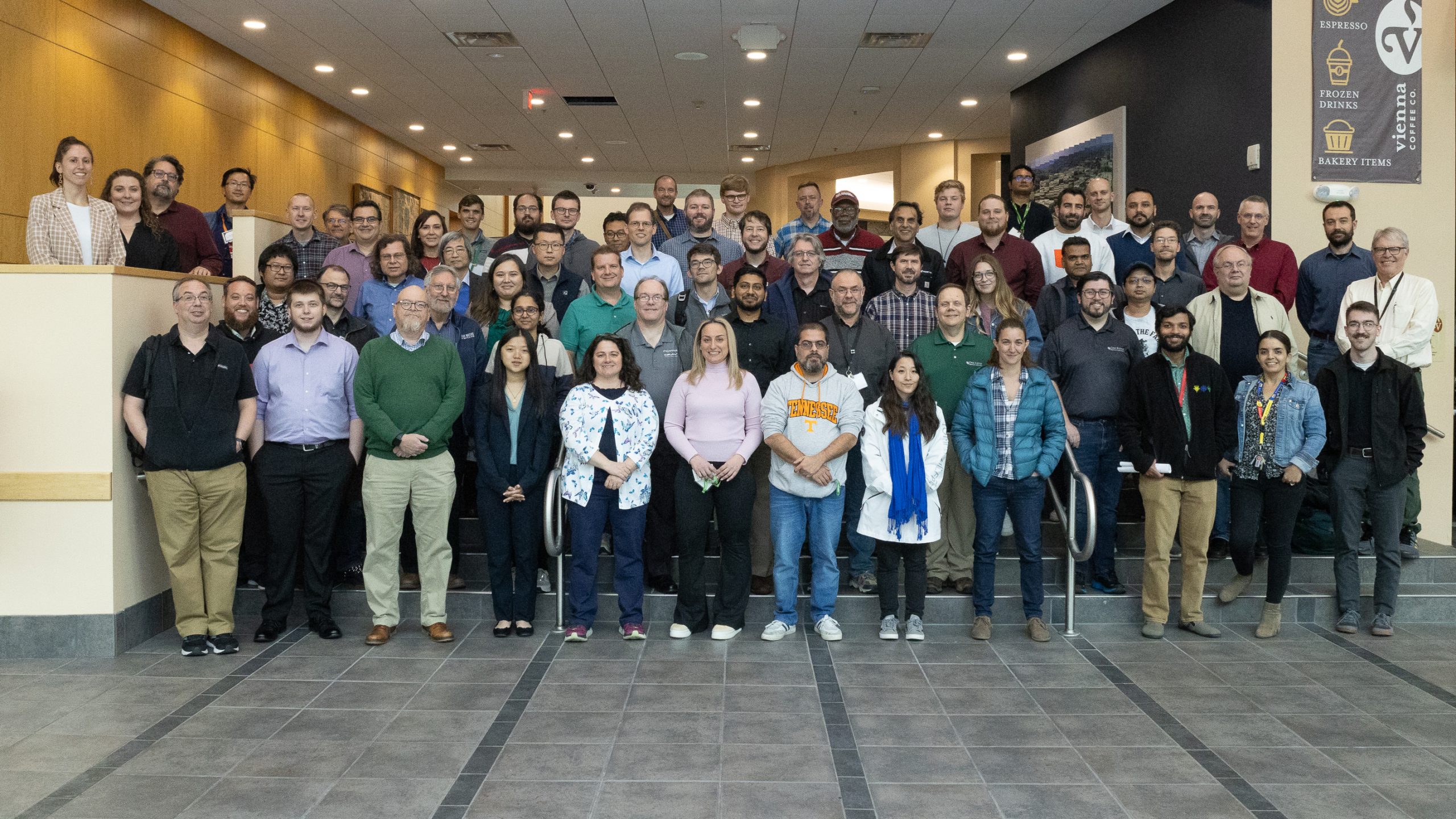The Oak Ridge Leadership Computing Facility (OLCF), a US Department of Energy (DOE) Office of Science user facility located at DOE’s Oak Ridge National Laboratory (ORNL), hosted its 18th annual User Meeting in October. The meeting was again held in an entirely virtual format, but the nearly 200 attendees were excited for the future and for the launch of OLCF’s latest supercomputer, Frontier.
“We tend to use the User Meeting to discuss changes that will impact the user community. While we have released details about the system over the past few years, it was only recently that we were able to lift the lid and talk about Frontier openly (due to the NDA),” said Ashley Barker, section head for OLCF operations. Indeed, the first day was primarily an introduction to Frontier and dedicated to updates. The supercomputer’s storage, architecture, and future applications were notable discussions.
“There are still many users who are learning about Frontier. As the main computational workhorse of the OLCF in the coming months, we decided to make it a large focus of this meeting,” Barker continued.
Ushering in the exascale computing era, Frontier sits at no. 1 on the TOP500 list of the fastest supercomputers and is also among the top 500 most efficient. The research that Frontier will soon enable has added to the thrill of preparing for the launch.
The 2023 INCITE (Innovative and Novel Computational Impact on Theory and Experiment) awards were also announced earlier this fall. These awards are split between the OLCF and the Argonne Leadership Computing Facility and include allocations of compute time on supercomputers at both facilities. The INCITEs are awarded to a wide range of research campaigns—from materials science to earthquake research—that will benefit from leadership-class computing resources.
On the meeting’s second day, 13 breakout sessions were held to prepare for these various projects. Researchers were able to connect directly with other users and presenters, such as Prentice Barlow, whose talk covered research accounts with OLCF. These sessions, provided by existing users, explored the computer’s functionality, described the data storage solution, and provided tutorials and tips on computer use.
A key aspect of the meeting was the election and introduction of the new OLCF User Group executive team. Andre Walker-Loud of Lawrence Berkeley National Laboratory was elected as chairman, having been on the board previously. Eric Nielson of the NASA Langley Research Center was again elected to the board after previously spending 3 years as chair.
“It is always a pleasure to work with other members of the board and the OLCF staff as we try to provide helpful feedback,” said Nielson.
Others elected to the board include Ana Cuhna of the University of Antwerp and Mark Coletti of ORNL.
For 2023, the meeting organizers plan to return to an in-person format.
Barker added, “We are already thinking about how we might make some of the elements of the in-person meetings that we’ve had in the past work well for this type of hybrid environment. For example, can we enable a useful hybrid poster session or have good hybrid deep-dive Birds of a Feather discussions among staff and users?”
Information about the 2023 meeting will be released next year. This year’s meeting agenda, recordings, and slides are available on the meeting’s webpage.
UT-Battelle LLC manages ORNL for DOE’s Office of Science, the single largest supporter of basic research in the physical sciences in the United States. DOE’s Office of Science is working to address some of the most pressing challenges of our time. For more information, visit https://energy.gov/science.






